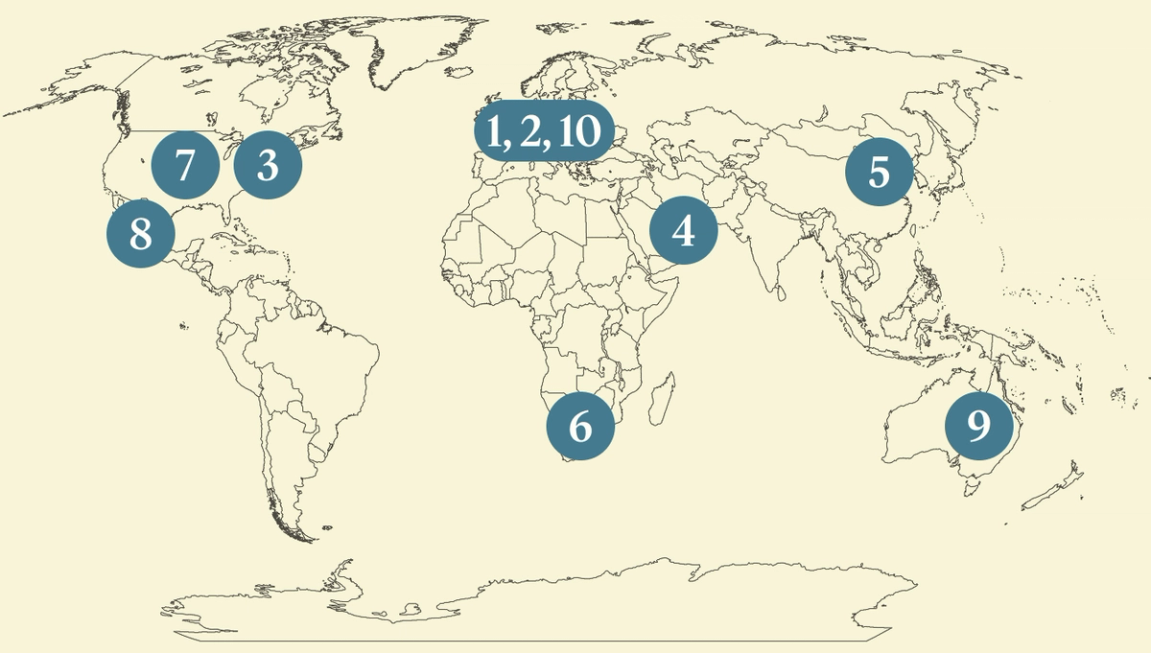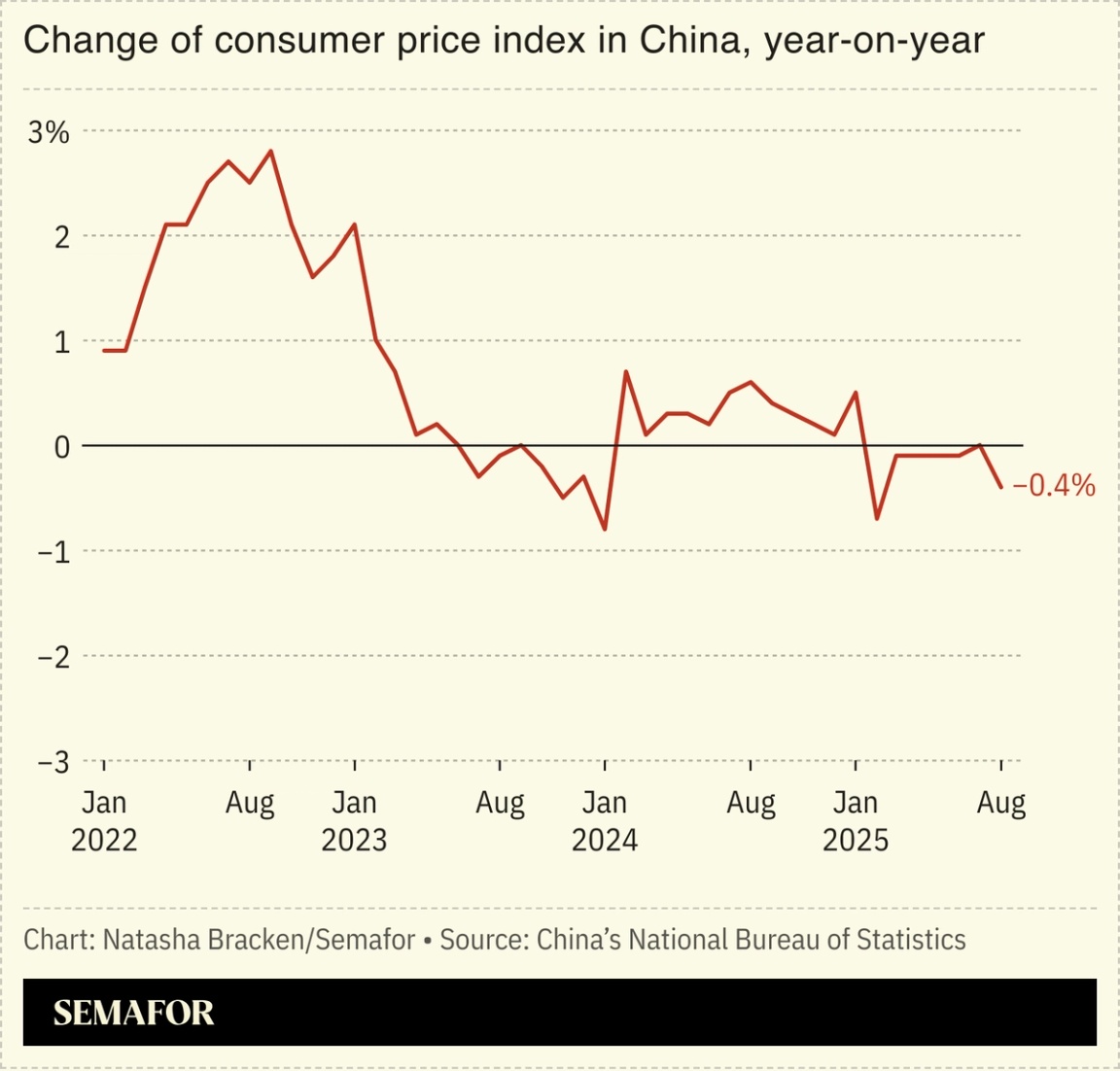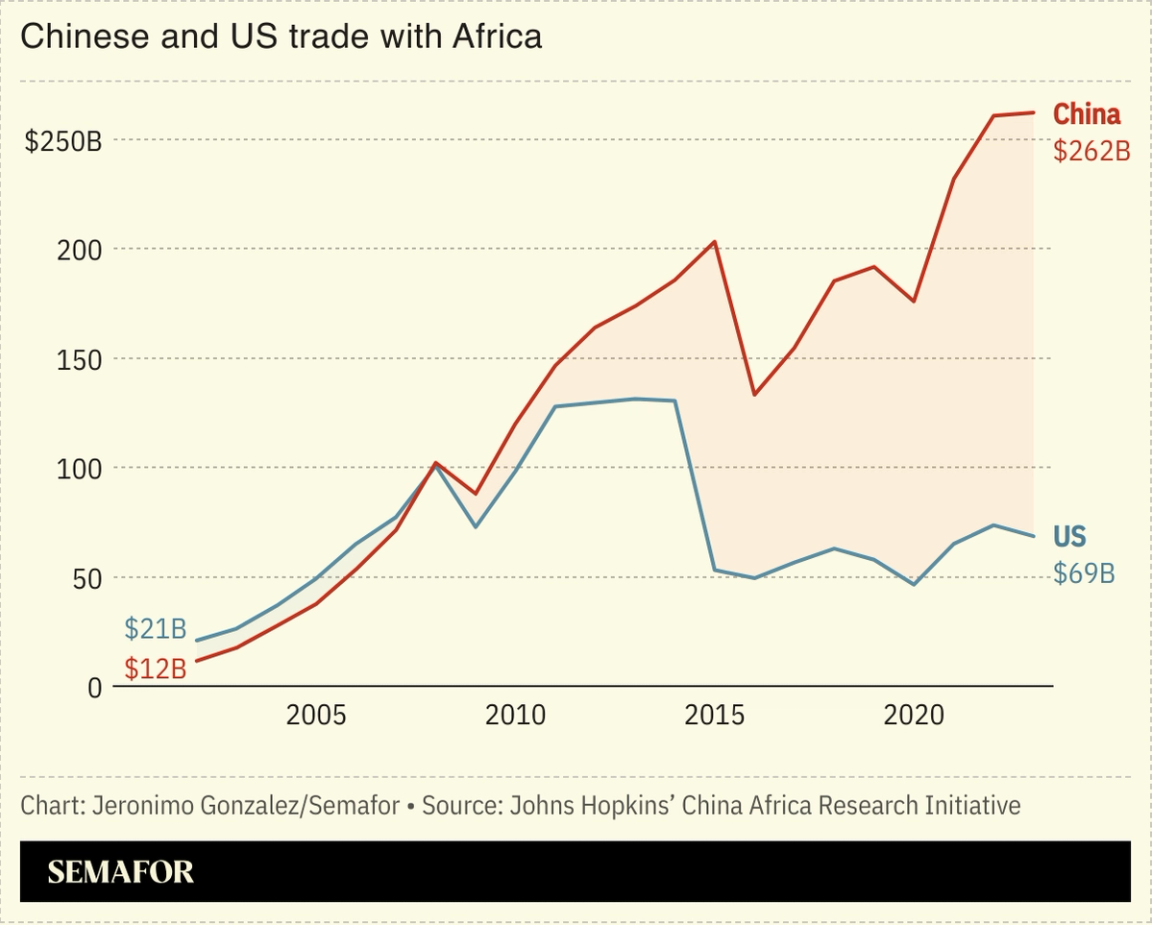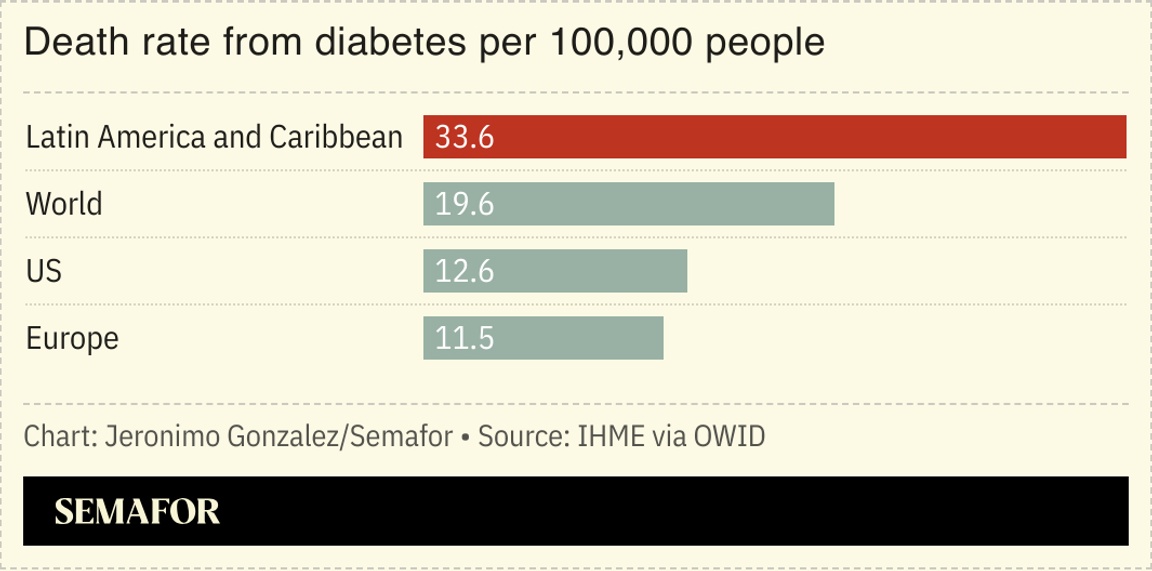| | Poland shoots down Russian drones in its airspace, Trump wants EU tariffs on China and India, and a ͏ ͏ ͏ ͏ ͏ ͏ |
| |  | Flagship |  |
| |
|
The World Today |  - Russian drones in Poland
- EU talks tough on Russia
- Trump pressures EU
- Qatar strike fallout
- China deflation fears
- S. Africa’s US delegation
- Obesity up, hunger down
- Mexico plans soda tax
- Vaccine for koalas
- UK gallery’s big plans
 Good news for Mexico’s jaguars, and an exhibition of a 19th-century US artist in Paris. |
|
Poland shoots down Russian drones |
 Polish Prime Minister Donald Tusk. Kacper Pempel/Reuters Polish Prime Minister Donald Tusk. Kacper Pempel/ReutersNATO member Poland said it shot down Russian drones in its airspace, potentially a major escalation in the Ukraine war. Warsaw said the “huge number” of aircraft represented an “act of aggression,” the first such incident actively involving the Western military alliance’s forces engaging Russia’s since the Kremlin’s 2022 invasion of Ukraine. Moscow did not immediately comment. The episode came shortly after a top Russian security official threatened Finland — which joined NATO as a result of the war — with “the collapse of Finnish statehood forever.” Russian President Vladimir Putin is “emboldened” by recent shows of support from Beijing, CNN reported: One US senator said Putin was “testing [NATO’s] resolve” to protect its eastern members from Moscow’s aggression. |
|
VdL vows tougher Russia measures |
 Yves Herman/Reuters Yves Herman/ReutersThe European Commission president promised to toughen efforts against Russia and hold Israel to account over its war in Gaza, in an annual speech that focused on defense and security. Hours after Poland shot down what Warsaw said were Russian drones, Ursula von der Leyen pledged increased EU military spending and suggested using frozen Russian assets to fund Ukraine’s defense. In a wide-ranging State of the European Union address, she also said she would partially suspend trade with Israel, insisted the bloc “must not be naive” on migration, and vowed tougher efforts on privacy and Big Tech. Yet there was little on competitiveness, ostensibly an EU priority after a major report last year criticized the bloc on the issue. |
|
Trump: EU should punish China, India |
|
Trump left in dark on Israel strike |
 Ibraheem Abu Mustafa/Reuters Ibraheem Abu Mustafa/ReutersUS President Donald Trump said he was “very unhappy” about being left in the dark over Israel’s strike against Hamas in Qatar, potentially widening a schism with Israeli Prime Minister Benjamin Netanyahu. Trump has voiced frustration with Netanyahu repeatedly in recent months for leaving him in the dark over attacks on Iran, as well as its conduct in Gaza and its apparent refusal to agree to a ceasefire there. But Netanyahu has learned that while “Trump… will grumble,” he won’t punish the Israeli leader, The New York Times reported. And while Israel’s attack was intended to signal to Hamas that nowhere is safe, “few are buying” Netanyahu’s claim that the bombing could help end the war, The Washington Post said. |
|
China deflation worries deepen |
 New data in China intensified fears of deepening deflation in the world’s second-biggest economy. Consumer prices fell more than expected and into negative territory for the first time in months, while factory deflation persisted, adding to the challenges Chinese economic policymakers are facing. The country is grappling with mammoth debt, a real-estate market downturn, high levels of youth unemployment, and a broad economic slowdown. Deflation is particularly dangerous: When consumers expect declining prices, they hold off major purchases, creating a vicious economic cycle. Beijing has sought to fight this trend by urging against price wars and unveiling stimulus measures, but “it remains questionable to what extent this crackdown will be effective,” ABN Amro economists wrote. |
|
S. Africa dispatches US delegation |
 South African President Cyril Ramaphosa sent a trade delegation to the US in a bid to roll back punishing tariffs imposed by Washington. US President Donald Trump slapped a 30% tariff on South African imports over what he alleges are laws that discriminate against white people, as well as Pretoria’s close ties to Russia and China. Ramaphosa is also expected to name a new ambassador to Washington after the last one was expelled. However, experts have warned that Trump’s tariffs risk pushing Pretoria and other African nations closer to Beijing’s sphere of influence. Africa is “going straight into the hands of China,” a Nigerian economist told CNN. “That is the unfortunate outcome.” |
|
More obese than underweight kids |
|
 Acumen Founder and CEO Jacqueline Novogratz will join the stage at The Next 3 Billion — the premier US summit focused on connecting the unconnected. Semafor editors will sit down with global executives and thought leaders to highlight the economic, social, and global impact of bringing the next 3 billion people online. Sept. 24, 2025 | New York City | Delegate Application → |
|
Mexico soda tax tackles obesity |
 Mexico announced a tax hike on sugary drinks as the country looks to tackle one of the world’s highest obesity rates. Authorities said the tax would almost double after a previous hike failed to dent consumption. Obesity rates have risen steadily across Latin America — in line with a global trend — in recent decades as consumers shift to processed foods high in sugar, fat, and sodium. Meanwhile, many in the region still struggle to consume enough calories. Experts warn that Latin America’s health systems are worryingly unprepared for a rise in obesity-related diseases such as diabetes, while others fear the devastating economic toll of rising obesity rates, El Economista reported. |
|
Chlamydia vaccine for koalas |
 Daniel Munoz/File Photo/Reuters Daniel Munoz/File Photo/ReutersAustralia approved a vaccine for chlamydia in koalas. The bacterial disease, spread by sex or fluid exchange, has devastated koala populations in eastern Australia: Some colonies have infection rates of 70% and “are edging closer to extinction,” one scientist told the BBC. In other animals it is treated with antibiotics, but that kills gut bacteria that the marsupials rely on to digest the eucalyptus that is their primary food source. As few as 50,000 are believed to survive in the wild, and chlamydia causes around half of all koala deaths. The vaccine reduced mortality by 65% — but catching and inoculating the animals is costly, and there is so far no funding to roll the jab out at scale. |
|
|